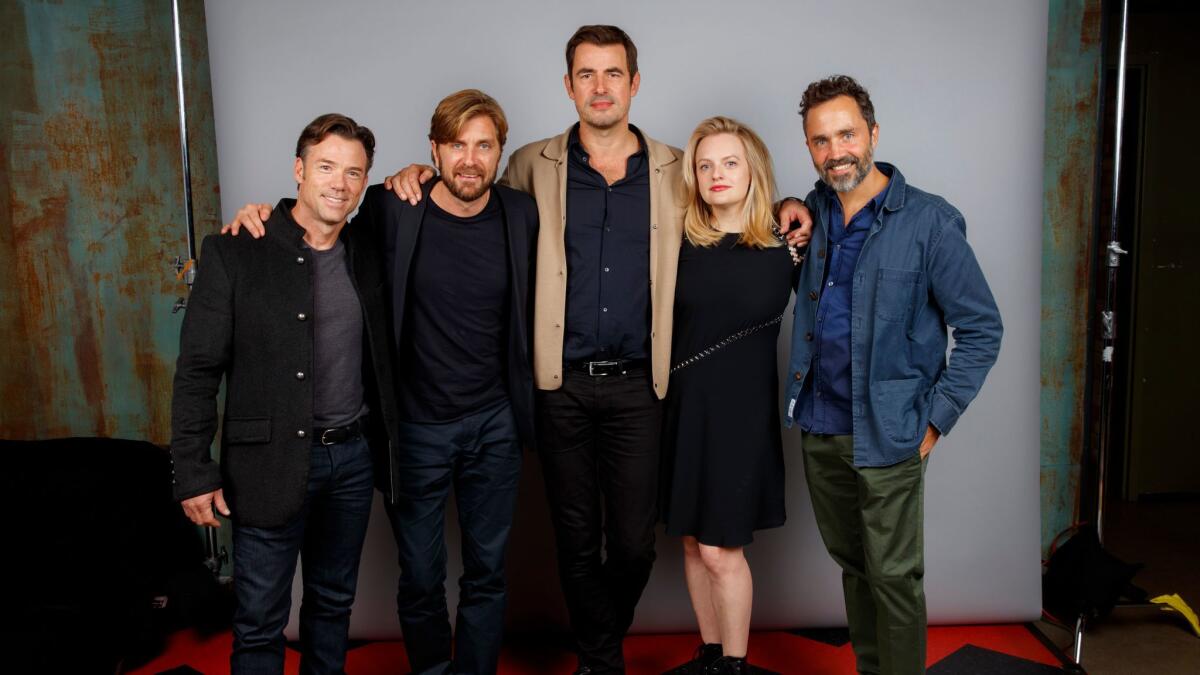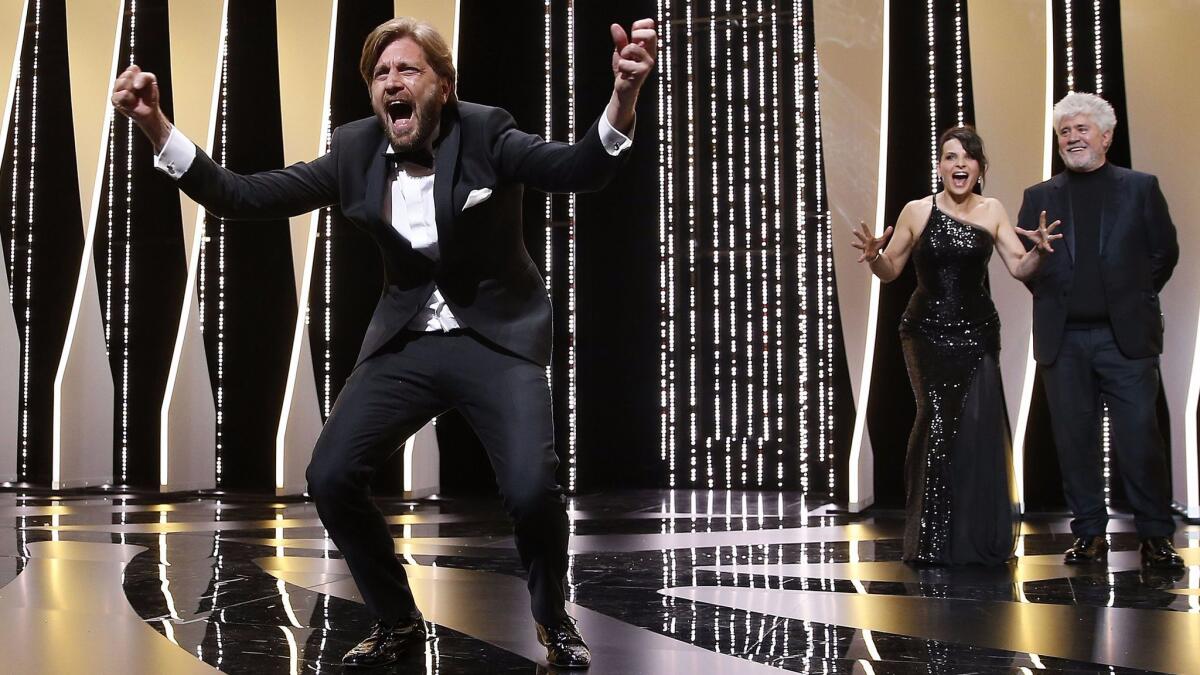Ruben Ostlund’s ‘The Square’ lands in the new avant-garde of European comedy

- Share via
Swedish filmmaker Ruben Östlund might be making some of the most serious comedies in the world today, movies that combine outrageously funny satire with provocative big ideas. His latest, “The Square,” forces audiences to consider how they might react to an escalating series of awkward interactions, in spaces both intimate and public, as a self-regarding museum curator (Claes Bang) finds himself swept up in a growing scandal. The film also stars Elisabeth Moss as an American journalist and Dominic West as a well-known artist. Terry Notary appears as a performance artist in the film’s most talked-about scene, where he disrupts a fancy black-tie gala by acting like a gorilla.
The film is a witty examination of privilege and power that won the prestigious Palme d’Or at this year’s Cannes Film Festival and is now competing as Sweden’s submission for the foreign-language Academy Award. Östlund’s previous film “Force Majeure,” which was nominated for a Golden Globe and made Oscar’s foreign-language shortlist, likewise couched ethical questions within the context of a comedy-tinged drama. Also a professor of film at the University of Gothenburg in Sweden, in conversation Östlund is both playful and thoughtful, just as his movies are.
WATCH: Video Q&As from this season’s hottest contenders »
Why did you want to have an English-language role in the film? And how did you come to cast Elisabeth Moss?
I didn’t want any English language in the film. But then I did a casting session in London with Elisabeth and a lot of other actors. I really didn’t want to have an English-speaking actor in the film, but she was so good it ended up if I didn’t say yes to her I’m doing the wrong thing as a director. And then the story is in the arts and it’s a little bit international and so you can expect that some people speak English.
The film has an unusual mix of comedy and drama. Were there any specific films that were an influence on the tone?
I would say there are many different films. “The Great Beauty,” because it was wild. I thought it was very inspiring to see that movie. And I’d say [Michael] Haneke at the same time. I would say [Luis] Buñuel, the approach that he has. “The Discreet Charm of the Bourgeoisie,” that title is fantastic. So maybe the combination of Haneke and Buñuel and “The Great Beauty” in order to point out the inspiration. But what I really would love is if I could find a style that people consider Ruben Östlund style, of course. That is throwing the audience from one moment being entertained and the next moment not knowing if you’re allowed to react in this way, being horrified and then suddenly very embarrassed. To really have a big dynamic range of where you can go emotionally in the film and you’re never safe, so you don’t know, am I allowed to laugh about this? I would love to try to find that style.

It seems refreshing for a movie this funny to win the Palme d’Or.
I think it’s beautiful. And I think there’s actually a movement going on in Europe a little bit. That when you have content you think is important, you’re dealing with it in an entertaining way. Yorgos Lanthimos, Maren Ade and I think [my] films also are like an avant-garde when it comes to a new approach to European cinema, where we don’t have to be pretentious. We can be wild and crazy and still have content that is important. So I also think it’s natural that it wins the Palme d’Or because [last year] Maren Ade with “Toni Erdmann” swept the floor and then we started to ask ourselves questions, why didn’t this film win the prize? It was like saying prizes should only go to this old idea about what is cinema art. So I really, really hope this is something that will come even more.
There is a way in which your movies are almost sociological experiments, forcing viewers to ask what they themselves might do in certain situations.
It’s funny, I met Larry David yesterday. And he is a master of when it comes to “What would you do.” And I think a lot of my inspiration is quite close to stand-up comedy. You create a dilemma where you have two or more choices, but neither of them are easy. I love using dilemmas, because you can’t push the character’s behavior and easily judge it, you say, I could end up in that situation and I could also do that.
And all these things affect us and push us in different ways when we are trying to maneuver ourselves through life. A lot of films in the Hollywood system have a simple antagonist/protagonist setup. And stand-up comedy never does that. It’s a very humanistic thing, stand-up comedy. It’s exposing your failures, exposing your weakness, and in the same way you give people the possibility to understand yourself and others. And that’s very generous. It’s doesn’t matter how cynical the style of the comedian is, it’s still warm and beautiful.
SIGN UP for the free Indie Focus movies newsletter »
Follow on Twitter: @IndieFocus
More to Read
Only good movies
Get the Indie Focus newsletter, Mark Olsen's weekly guide to the world of cinema.
You may occasionally receive promotional content from the Los Angeles Times.











